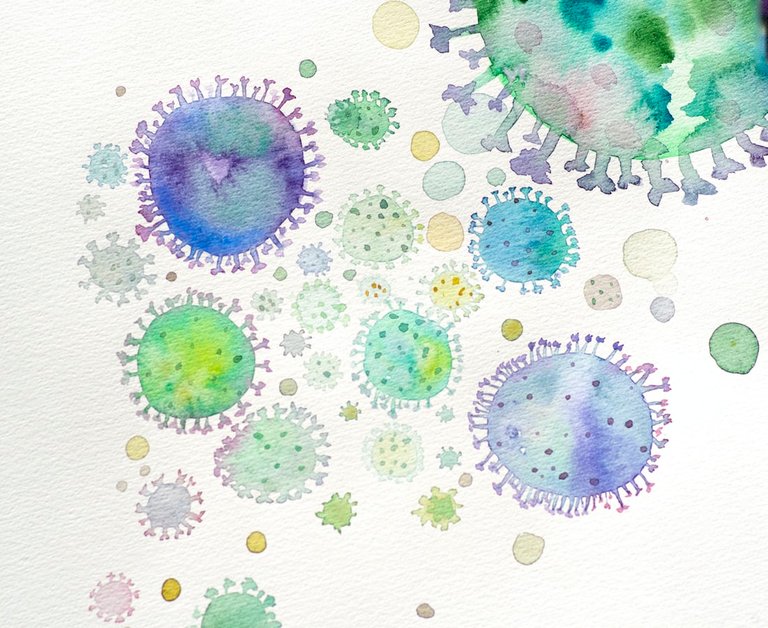Sexuaually Transmitted Diseases to Know About
STD is the third most common sexually transmitted disease (after HIV and herpes). It’s also one of the most commonly misdiagnosed conditions. Fortunately, there are a variety of ways to prevent future contracting the STD. STDs are Transmission-based Diseases The word “strep” means “bacteria” in English, but “disease” actually refers to a group of bacteria known as gonorrheal bacteria.
These bacteria vomit up pus when they have sex with either humans or animals, which results in the spread of the bacteria over an area called the rectum. The more than 20,000 different strains of STDs known to exist within our body fluids suggest that these diseases are transmission-based meaning that they develop not just from an original source, but also from subsequent contact with someone who has recently had sex with them. This makes it easier for anyone who is worried about contracting an STD.
Human to Human Transmission
You might be wondering how do these STD tend to be contacted by humans. Well it is through human to human transmission which I will be discussing below as you follow me further.
This is the main form of transmission for Syphilis and also one of the most common causes for acquiring the sexually transmitted infection (STI). The human host’s pores are extremely large, and because the human pores are made up of thousands of tiny, tiny bacteria, the bacteria can easily get inside your pores. Once in your pores, the bacteria can’t be passport-sized enough to be removed by the immune system, so they stay around inside you until they can’t be flushed out.

What’s more, all the toxins and unhealthiness that come with this infection can seep into your blood vessels, causing an increased risk of heart disease, liver and even brain cancer. In addition, this bacteria can easily grow in the environment, where other solid and liquid supplies are often challenged with high pressure or heat.
Humans are the sole source of transmission for Syphilis
This means that if you get syphilis, you’re transmitting the infection to someone else. In fact, this is one of the main reasons you should get tested for the STD early: If you don’t know who’s contracting your symptoms, it’s hard for your doctor to tell who you may get the infection from. Humans are the most common source of transmission for Syphilis, and it’s also the only STD that is transmitted solely between people not the produce or livestock they’re biting.
What’s more, chlamydia, which is transmitted between people through a sexual encounter, accounts for only about 5% of all new cases of Syphilis. Once the bacteria get inside your pores, it’s very difficult for your immune system to get rid of them. By the time your doctor discovers you have the condition, it’s too late to do anything about it. Chlamydia can rapidly progress to full-blown pelvic inflammatory disease (PID), which can result in a variety of symptoms, such as painful intercourse, bleeding, pelvic floor problems and a protruding pelvis.
Humans have the natural way to prevent Human To Animal Transmission

Human to animal transmission is the most common form of transmission. This happens when an organism comes into contact with a susceptible host. Humans are particularly susceptible to this, as they are the only living species that can pass the BVD. Many diseases that are transmitted by humans are also transmitted by animals. These diseases are often caused by West Nile virus, which is spread by mosquito bites.
Human to animal transmission is the main cause of Transmission-based diseases, but also one of the most preventable ones. This is because most transmitting organisms are very small, and unlike the big, bad, badgers and elephants that can produce a infectious hoof or tail, most people can’t get infected from other humans. Many sexually transmitted diseases (STDs) are transmitted by the contact with the skin of another human or by the air or water that comes into contact with the skin.
Human to animal transmission is very rare, but it still occurs. There are around 50 species of insects that can transmit diseases, including humans. It is
These diseases include chlamydia, gonorrhea, syphilis and vaccinia. Because these infections are usually caused by bacteria, you can easily prevent them from getting inside your pores by washing your hands after having sex with someone who has them.
Strategies for Controlling STDs in Women and Men
Controlling STDs in women and men varies based on several factors, such as their age, lifestyle and health, as well as the ability of the sex partner to reduce their risk of acquiring the infection. Healthy, fit, healthy-looking men and women can be far better than the average person in many ways. These people typically have healthier blood pressure, body weight and cholesterol levels, as well as higher rates of smoking and dieterillation, which means they are more likely to have prevented future diseases.
Healthy, fit, healthy-looking individuals can also be immune to certain diseases, such as human Immunodeficiency virus (HIV) infection. As a result, the average person has a much higher chance of managing their infection and preventing further illnesses from happening to them.
Types of Sexually Transmitted Diseases and Their Symptoms
There are many types of sexually transmitted diseases, and each one can be harmful. Knowing about the most common types and how they spread is key to fighting them. Chlamydia Chlamydia causes one kind of shame when you get it, which can lead to embarrassing or even painful sex. This disease usually occurs in people under the age of 18, but can also occur in people over 60. The reason for this is unclear, but it is believed to be a result of ageing.
Over time, chlamydia can change your entire sex life, forever. You canOnly get it when you are 16 or younger. If you are aware of your age, you can prevent this from happening to you by using an age-appropriate sex game. No matter how old you are, it is never too late to change your sexual habits.
Vaccine-associated Chlamydia This happens when someone is given a contaminated dose of a vaccine, which can lead to transmission of the disease. It is caused by the Poliovirus, which is the primary cause of poliomyelitis. Over time, vaccination-associated diseases can cause a person to be less fit, have weaker immune systems, and be more prone to illness. This can significantly reduce any potential benefits of vaccination.
(2). https://www.cdc.gov/std/general/default.htm
(3). https://www.healthywa.wa.gov.au/Articles/A_E/About-sexually-transmitted-infections-STIs
(4). https://medlineplus.gov/sexuallytransmitteddiseases.html
Good information you have shared. It seems unbelievable that with so much information that we have at hand, the internet abounds, and people are still so ignorant.
There are high numbers of this type of diseases, and it is a sign of ignorance, in addition to a sign of irresponsibility, because it is difficult for someone to be completely unaware that they should protect themselves when having sex.
Ignorance is making people to live in suffering and so the ignorance must really be cured
Congratulations @royalevidence! You have completed the following achievement on the Hive blockchain And have been rewarded with New badge(s)
You can view your badges on your board and compare yourself to others in the Ranking
If you no longer want to receive notifications, reply to this comment with the word
STOPCheck out our last posts:
Support the HiveBuzz project. Vote for our proposal!